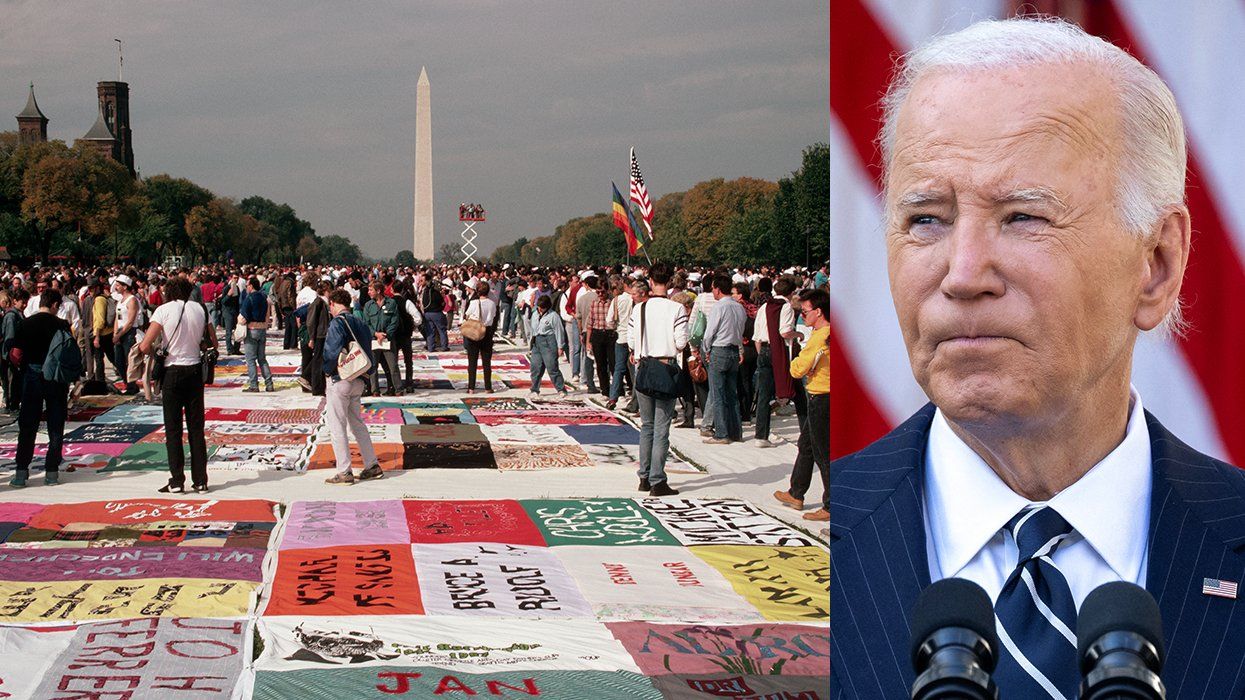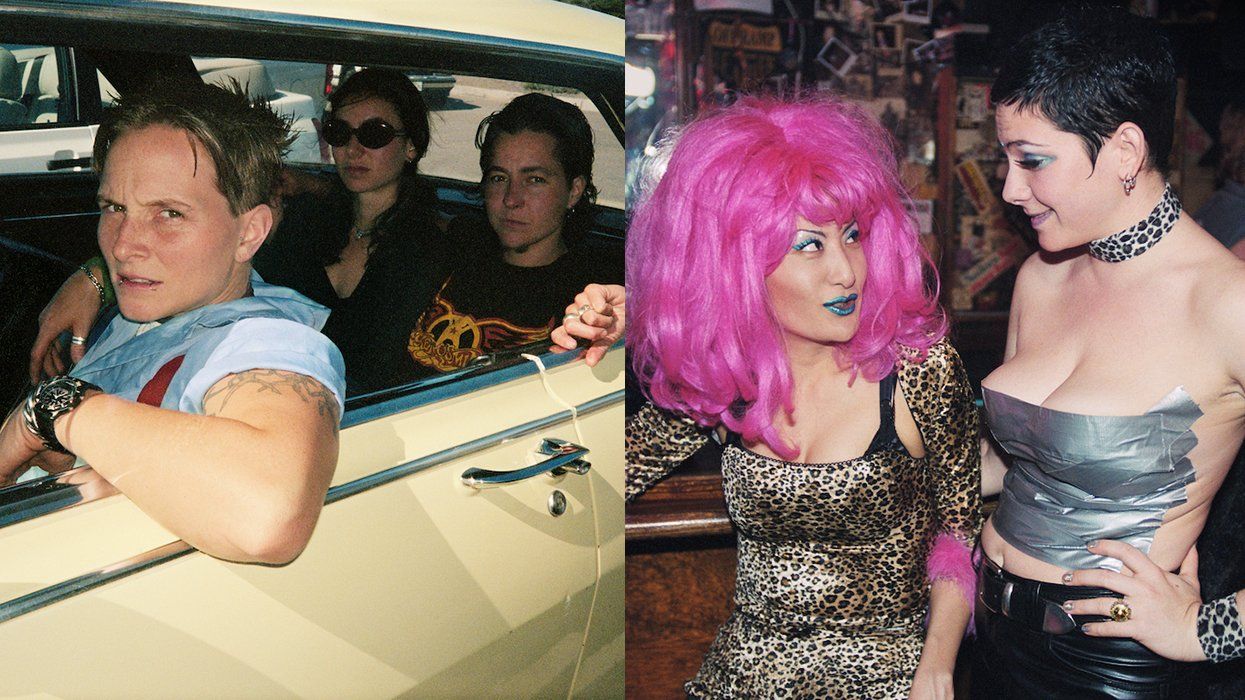This Sunday, the AIDS Memorial Quilt will return to Washington, D.C., at the White House, but unlike its previous appearance in 2012 — when only a small section was displayed in the East Wing — it will now stretch across the South Lawn in a sweeping, powerful tribute to lives lost to AIDS. It will be the first time the Quilt has been displayed on the lawn.
The event, held in observance of World AIDS Day, will highlight both the progress made and the ongoing fight against HIV and AIDS. Nearly 50,000 panels — crafted with love, grief, and defiance — bear the names of over 105,000 people.
Keep up with the latest in LGBTQ+ news and politics. Sign up for The Advocate's email newsletter.
President Joe Biden and First Lady Jill Biden will lead a moment of silence after volunteers open and place the panels on the South Lawn. They will be joined by survivors, their families, and advocates, according to the White House. The program is expected to begin at 2:30 p.m. ET.
"The AIDS Memorial Quilt, which began at a storefront in San Francisco at a time when victims did not receive funerals due to social stigma, is heading to the White House for the first time in history," a White House spokesperson told The Advocate. "On World AIDS Day, the President and First Lady will honor the memory of those we have lost to HIV/AIDS and celebrate the remarkable strength of the those who continue to live and thrive with HIV.”
Later, the public will be able to view the display as part of a garden tour-style open house on the White House grounds. The White House will also once again display a giant red ribbon on building’s columns.
A living memorial
The AIDS Memorial Quilt began in 1987 as a grassroots project to humanize the growing epidemic and commemorate loved ones lost. Born out of San Francisco activism during a time of government inaction and societal stigma, the Quilt has since grown into the world’s largest ongoing community arts project. Each 12-by-12-foot panel, typically displayed in 24-by-24-foot clusters, tells deeply personal stories of love and loss.
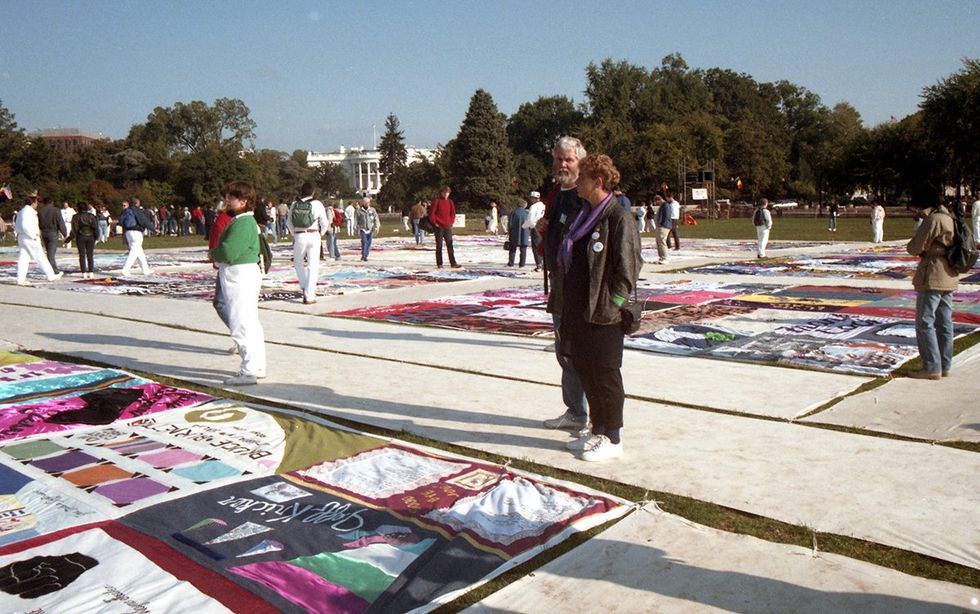
Speaker Emerita Nancy Pelosi, the California Democrat and a longtime advocate for LGBTQ+ rights, shared her memories of the Quilt’s early days during a private tour of the Library of Congress archive that houses many artifacts associated with the Quilt this summer. She told The Advocate about her initial skepticism about the project when speaking with Cleve Jones, the Quilt’s creator. “When they came to see me about everyone having to sew, I said nobody would sew. I was definite about that,” Pelosi said. She later admitted she was wrong, acknowledging the groundswell of participation that followed. By June 1987, Pelosi had been elected to Congress, and by October, she was advocating for the Quilt’s display on the National Mall.
Related: Nancy Pelosi emotionally reflects on LGBTQ+ community at Library of Congress AIDS Quilt exhibit (exclusive)
Pelosi recalled a particularly fiery meeting with the Interior Department, where officials initially suggested allocating only a tiny corner of the Mall for the Quilt’s display. “I said, ‘Perhaps you mistook us for someone who thinks small. This is not going to happen,’” she said. Thanks to Pelosi’s advocacy and the determination of the project’s organizers, the Quilt’s 1987 display on the Mall became a historic and iconic moment in the fight against AIDS.
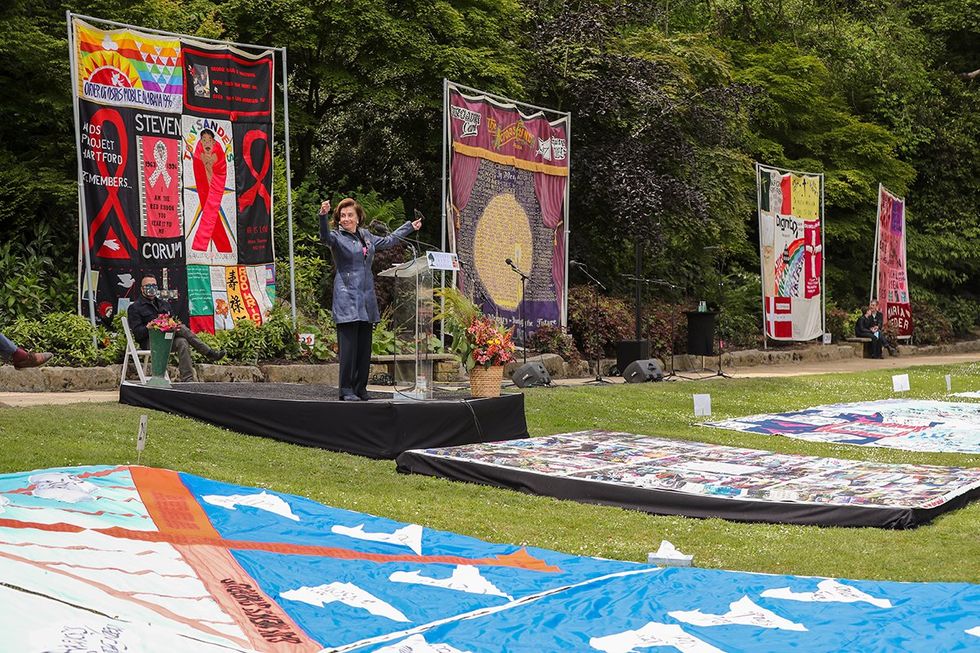
Now stewarded by the National AIDS Memorial, the Quilt serves as both a tribute to the past and a call to action for the future. Through programs like Surviving Voices and Q&AIDS, the Memorial ensures the stories of the crisis remain visible, while initiatives like the Pedro Zamora Young Leaders Scholarship nurture the next generation of advocates. There are also plans for an Interpretive Center for Social Conscience in San Francisco to connect the lessons of the AIDS epidemic to broader struggles for social justice.
A proclamation and the path forward
“On World AIDS Day, may we show gratitude toward the activists, scientists, doctors, people living with HIV, and caregivers who have worked tirelessly to fight against the HIV/AIDS epidemic,” Biden said in his World AIDS Day proclamation. “It’s thanks to them that our Nation is finally within reach of ending new HIV transmission—I know that together, nothing is beyond our capacity.”
The Department of Health and Human Services estimates that 1.2 million people in the United States older than 13 were living with diagnosed and undiagnosed HIV.
"President Biden has been steadfast in his commitment to ending this epidemic, expanding access to vital medications such as PrEP and investing in groundbreaking HIV research at unprecedented levels," a White House spokesperson said.
The Biden-Harris Administration has adopted a comprehensive approach to the epidemic, integrating science, public health, and equity. According to the White House, the updated National HIV/AIDS Strategy, launched in 2021, has prioritized expanding access to medications like pre-exposure prophylaxis, or PrEP, reforming outdated HIV criminalization laws, and addressing social determinants of health such as housing and employment.
Support queer media. Become an Advocate contributor today.
Since taking office, the White House notes that Biden has invested more than $9.8 billion in the Ryan White HIV and AIDS Program to ensure that low-income Americans living with HIV receive quality care. The White House also points to the Ending the HIV Epidemic initiative, which has driven measurable progress, with HIV incidence falling 21 percent in high-priority jurisdictions between 2017 and 2022.
Globally, Biden has reasserted U.S. leadership through programs like the President’s Emergency Plan for AIDS Relief, commonly known as PEPFAR, which has saved over 25 million lives since its inception in 2003. Reauthorized in 2023 with bipartisan support, PEPFAR continues to expand access to antiretroviral therapies and preventative measures in 55 countries.
Confronting stigma and improving quality of life
Beyond biomedical advances, the fight against HIV and AIDS requires confronting persistent stigma. The Biden-Harris administration has championed the U=U (undetectable equals untransmittable) message, ensuring that those with undetectable viral loads are recognized as non-infectious. The White House notes that efforts to reform HIV criminalization laws and combat discrimination further reflect the administration’s commitment to justice.
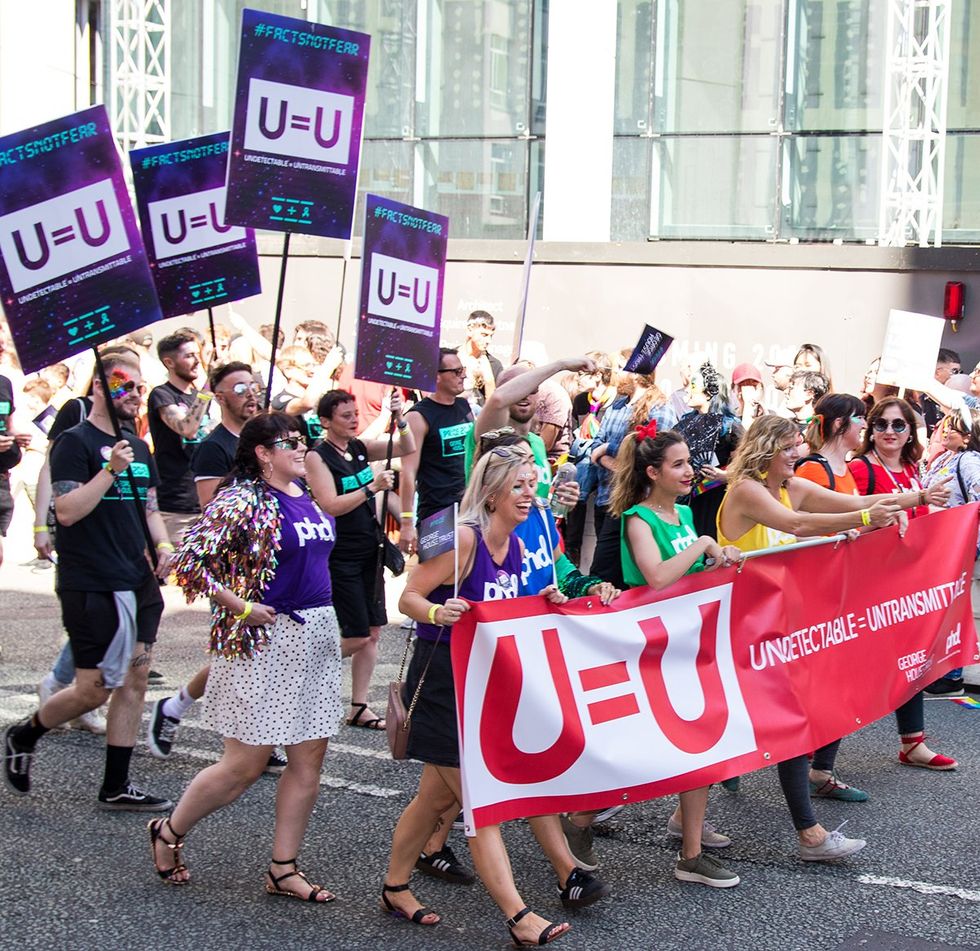
On Thursday, December 5 the White House will host the “Enhancing the Lives of People with HIV: A Quality of Life Symposium.” Admiral Rachel Levine, the Assistant Secretary for Health at the U.S. Department of Health and Human Services, will join Francisco Ruiz, director of the White House Office of National AIDS Policy, and Neera Tanden, director of the Domestic Policy Council, in leading discussions on critical issues affecting people living with HIV.
The event will explore challenges such as mental health, housing insecurity, and aging, emphasizing the importance of holistic care in improving outcomes for people living with HIV. More than 100 advocates, community leaders and federal partners will participate, according to the White House.
Editor's note: This story was updated with additional reporting.
